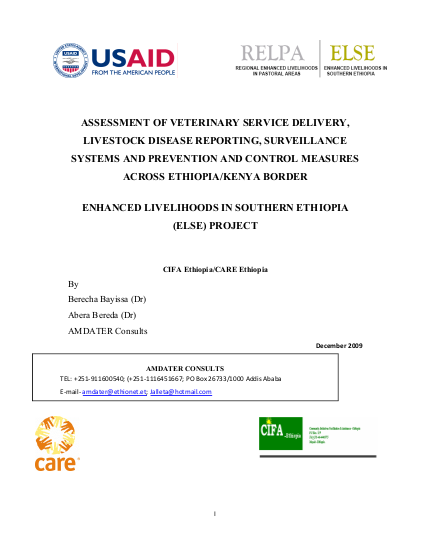
CIFA Ethiopia and CARE Ethiopia in collaboration with border Districts offices of Borana zones of Oromia Regional State, Southern Ethiopia, and Northern Kenya and with other partners intended to execute assessment and consolidate evidence based on veterinary service delivery and livestock disease reporting, surveillance and controlling measures in cross border area. The specific objectives of assessment was to identify strength and limitation of cross-border veterinary service delivery and livestock disease surveillance and reporting system, consolidate best practices and recommend appropriate and concerted measures/ actions necessary for future improvement of livestock disease prevention and control across the border of Ethiopia/Kenya. Desk review, focus group discussions and key informant interviews were conducted to gather important data.
This assessment revealed that cross-border livestock owners have been obtaining most of the veterinary services from both countries veterinary offices. However, inadequate budget, logistic problems, poor veterinary infrastructures, shortage of trained manpower and poor management capacity of the sector were found to be the main causes for the very weakness of government veterinary services. Introduction of CAHWs program has improved the accessibility of veterinary service to cross-border area. Yet the study revealed that CAHWs’ activities become weakened due to lack of sustainable drug supply source with reasonable price and limited or absence of supervisions. Blackmarket veterinary drugs and frequent conflicts were also raised as threats of CAHWs. The interest of many NGOs participation to strengthen the veterinary sectors in the area, and current training of many students in veterinary profession could be good opportunities for future plan to improve veterinary service delivery to such remote pastoral community.